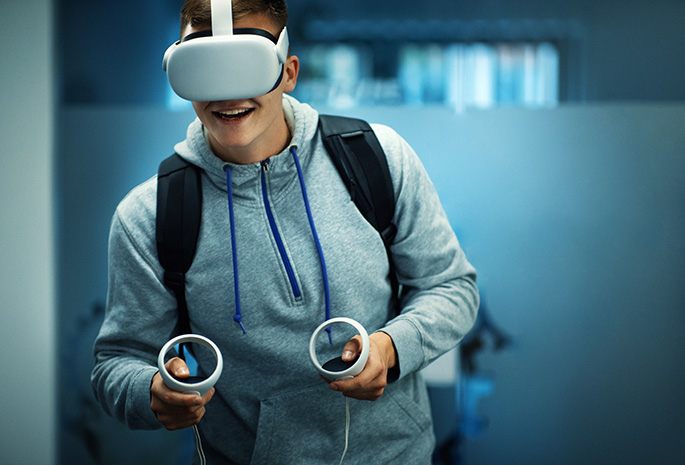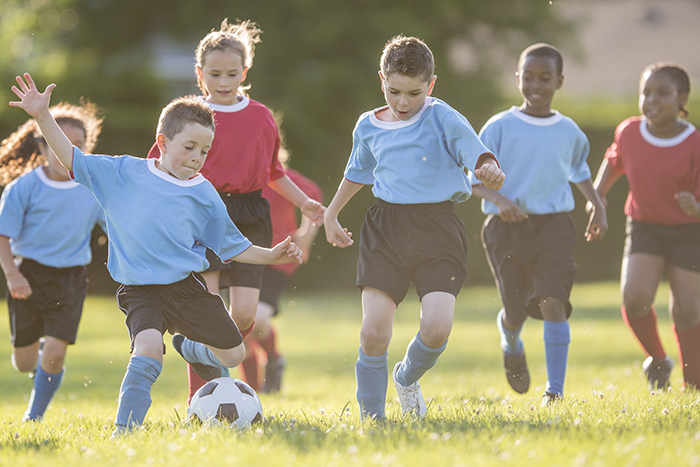College-level and professional athletes can access the most advanced training programs and technology for sports injury prevention and recovery. But researchers at Emory Sports Performance and Research Center say younger athletes would benefit most from advanced sports injury prevention programs and tools.
“We know that the way children grow and develop impacts their risk for sports-related injuries,” says center director Gregory D. Myer, PhD, professor of orthopaedics at Emory University School of Medicine. “Helping kids play safe and stay safe through their growing years can keep them active and competitive.”
Myer began his sports medicine career studying anterior cruciate ligament (ACL) injuries in young women. The ACL is one of two ligaments in the center of the knee and can often be torn while playing sports. Meyer points to research showing that just over half of young athletes return to competitive sports following an ACL injury.
Created in collaboration with the Atlanta Falcons, the center’s efforts focus on the science of making sports activities—from football to fútbol—safer for kids. “Injury of any kind is a key factor for quitting sports,” Myer says. “And with so many young kids playing a lot of sports at a pretty high level, we know we have a huge opportunity to make a difference.
“It makes more sense to start implementing sports injury prevention programs early rather than after athletes play through their high-risk years.”
Myer has found that those high-risk years begin around puberty—a critical time to keep kids active.
“When injuries happen, kids are removed not only from their sport but also from that sport’s built-in social network,” Myer says. “This creates a big risk that kids will head down a pathway of physical inactivity.”




